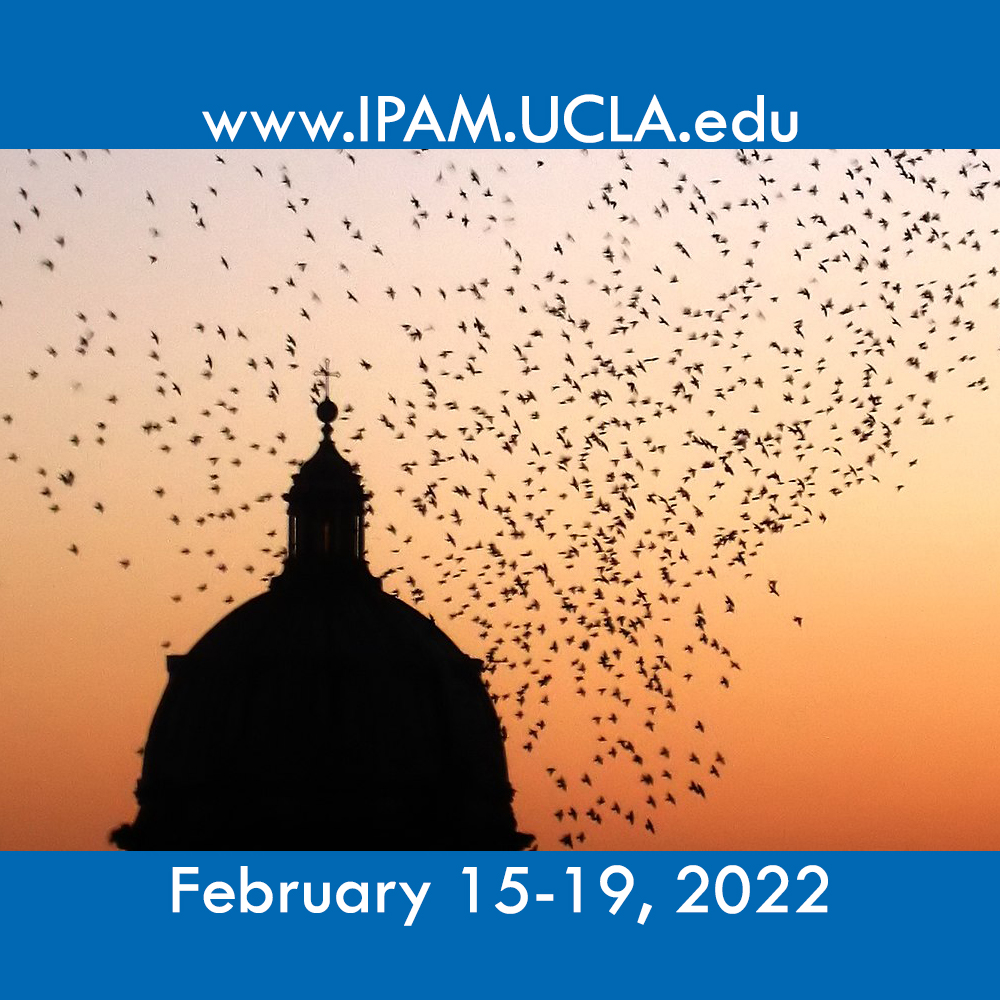Michael Muthukrishna - Paradox of diversity in the collective brain
Presenter
February 18, 2022
Abstract
Recorded 18 February 2022. Michael Muthukrishna of the London School of Economics and Political Science presents "Paradox of diversity in the collective brain" at IPAM's Mathematics of Collective Intelligence Workshop.
Abstract: Human societies behave as collective brains (Muthukrishna & Henrich, 2016). People within every society have cultural brains—brains that have evolved to selectively seek out adaptive knowledge and socially transmit solutions. Innovations emerge at a population level through the transmission of serendipitous mistakes, incremental improvements and novel recombinations. The rate of innovation through these mechanisms is a function of (1) a society's size and interconnectedness (sociality), which affects the number of models available for learning; (2) fidelity of information transmission, which affects how much information is lost during social learning; and (3) cultural trait diversity, which affects the range of possible solutions available for recombination. In general, and perhaps surprisingly, all three levers can increase and harm innovation by creating challenges around coordination, conformity and communication. I will focus on a model of the ‘paradox of diversity’ (Schimmelpfennig, et al. 2022)—that cultural trait diversity offers the largest potential for empowering innovation, but also poses difficult challenges at both an organizational and societal level. I’ll discuss ‘cultural evolvability’ as a framework for tackling these challenges. These approaches to collective intelligence have implications for entrepreneurship, polarization and a nuanced understanding of the effects of diversity. This framework can guide researchers and practitioners in how to reap the benefits of diversity by reducing costs.
